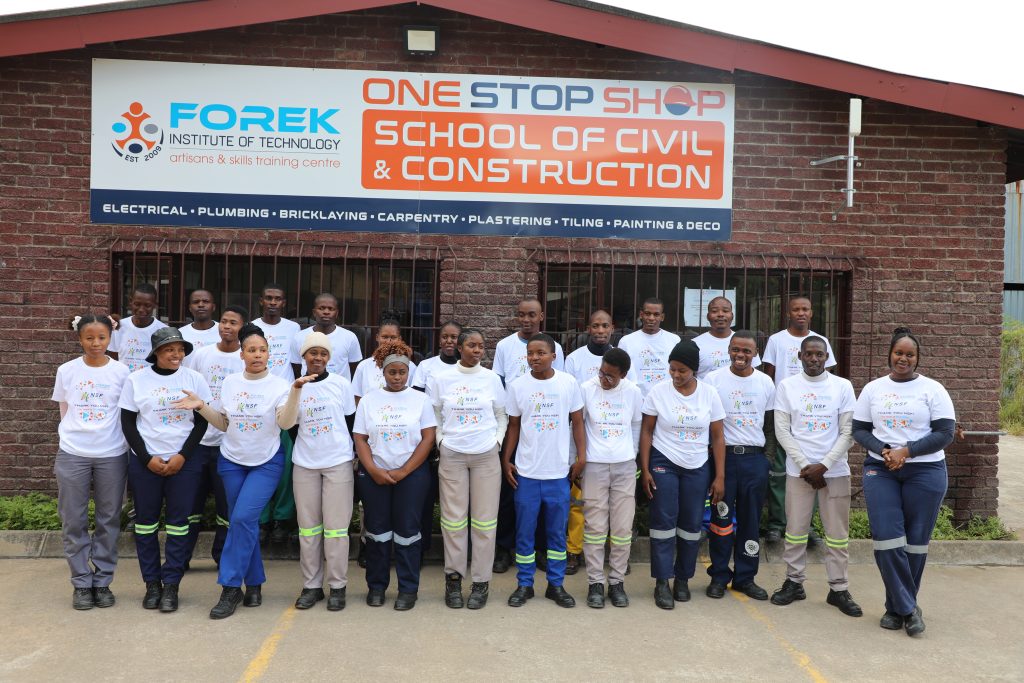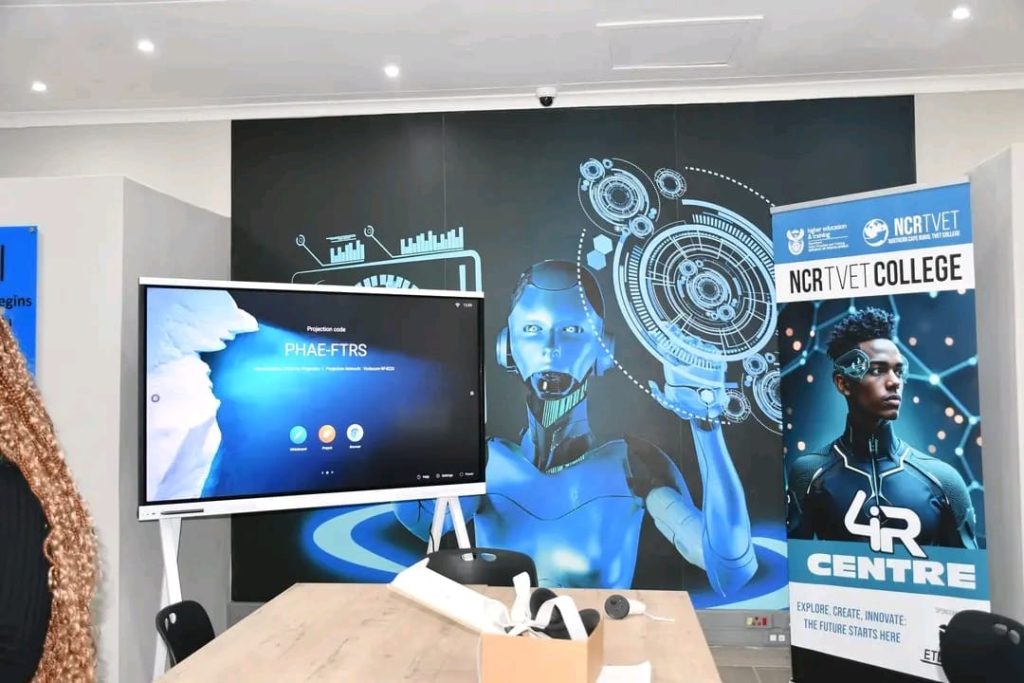The Department of Higher Education and Training (DHET) has hosted technical and vocational education and training (TVET) month for the 50 public TVET colleges.
In 2014, following a discussion with the South African Public Colleges Organisation (SAPCO), the Ministry of Higher Education and Training declared August TVET College Month.
The DHET TVET Month provides public TVET colleges a platform to showcase their vocational and short-term skills programmes. The initiative encourages young people to consider artisanal, vocational, and technical careers. It also guides learners on the importance of the programmes offered in TVET colleges, raising awareness of opportunities available within the sector.
This year marked the 11th year that the DHET hosted TVET Month. The National Skills Fund (NSF) participated in the Career Guidance and Entrepreneurship Awareness Campaign at the South-West Gauteng TVET College (Dobsonville campus) on 29 August 2024 under the theme “Invest in TVET for the future and innovation.”
The event aimed to raise awareness of the programme offerings and career pathways available at TVET colleges, improve learners’ understanding of admission requirements, and encourage timely application and pre-registration.
The entrepreneurship campaign also aimed to showcase the Entrepreneurship Centre and its programmes, encouraging students and particularly female students, to consider artisanship and entrepreneurship as viable career options.
Officials from the DHET, NSF, sector education and training authorities (SETAs), National Student Financial Aid Scheme (NSFAS), Career Development Services (KHETHA), and the Institute for National Development of Learnerships Employment Skills and Labour Assessments (INDLELA) attended the campaign.
Representatives from other government departments, universities, student representative councils, various organised labour groups and industry representatives, learners from surrounding schools and their teachers, exhibitors, out-of-school and unemployed youth (NEETs–Not in Education, Employment, and Training), college students, aspiring entrepreneurs from the college, community were also present.
The NSF communicated financial aid available through its implementing partners, particularly NSFAS, the National Research Foundation (NRF), and the DHET International Scholarships. However, this platform also enabled skills development providers and other role players to promote entrepreneurship as a viable option, turning job seekers into job creators.
The event enabled the school learners and their teachers to understand better and appreciate the TVET sector, recognising it as a vital component of the South African economy. They received advice on various opportunities for higher learning and skills development, helping them make informed career choices. Additionally, they had a chance to engage directly with employers from multiple sectors to showcase TVET colleges and the programmes they offer.
In preparing TVET students for the world of work and entrepreneurship, the DHET Acting Regional Manager of Free State, North-West and Gauteng regions, Pule Patrick Mashele, envisaged that by 2030, TVET colleges will offer a range of high-quality programmes. “Colleges strive to offer qualifications that respond to student and regional and national skills demand,” said Mashele.
Looking ahead, Mashele emphasised that public TVET colleges are expected to undertake a month-long programme of events and activities. These include direct engagements with youth, the NSF, SETAs, NSFAS, KHETHA, INDLELA, government departments, and employers. The goal is to profile the colleges and their programmes aligning with the National Skills Development Plan. The plan aims to ensure that South Africa has adequate, appropriate, high-quality skills contributing to economic growth, employment creation and social development.
The DHET used this programme to celebrate the ongoing development within the TVET college sector. It introduced various entrepreneurship programmes to support students, youth, and the immediate community, raising awareness about opportunities in the sector.
It is designed to help them succeed in their studies, acquire essential skills and knowledge, and actively contribute to the country’s economic activities, leading to sustainable livelihoods.
By Tshepang Monyake, NSF Communication Officer
Picture Caption: NSF Communication Officer Tshepang Monyake engages with stakeholders about programmes and scarce and critical skills. The NSF provides funding to post-school education and training institutions.




